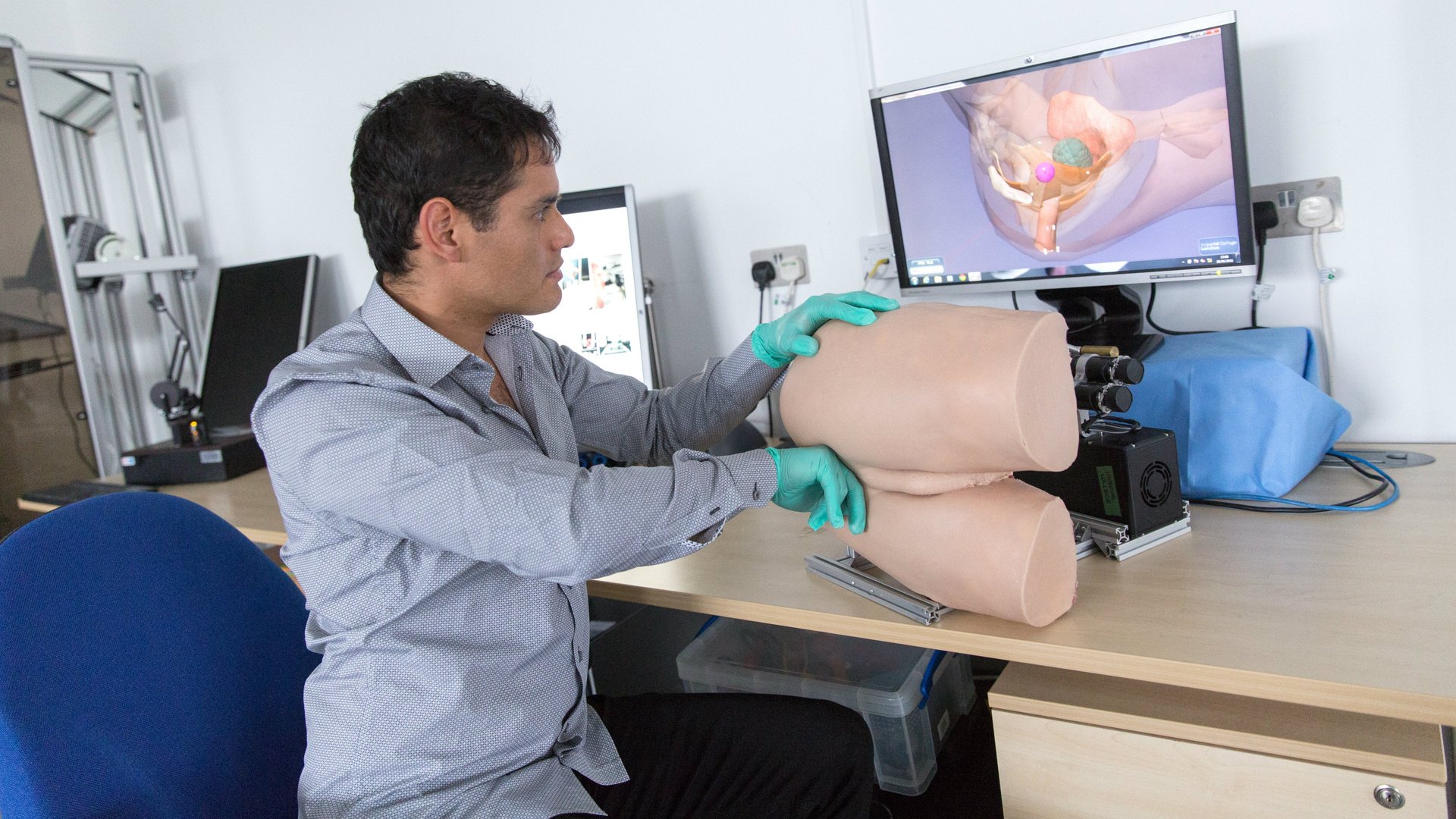Diagnosing prostate cancer is difficult. A robotic butt might make it easier
Prostate cancer is the second-most common cancer for men. And, yet, the first step of a doctor’s diagnosis for it remains crude: inserting the index finger into the anus.


Prostate cancer is the second-most common cancer for men. And, yet, the first step of a doctor’s diagnosis for it remains crude: inserting the index finger into the anus.
Doctors feel for the prostate gland, which sits below the bladder and is about the size of a walnut. If there’s a hard, knobby mass, it’s a sign of possible cancer and an indication that further tests may be needed.
Doctors learn what a cancerous prostate feels like through experience. The trouble is that people don’t easily volunteer for such a probing. In the UK, there’s just one registered “rectal teaching assistant,” as volunteers are known.
Given prostate cancer’s prevalence, it’s crucial to get the right result from the first test. Trainee doctors can use plastic models to practice, but these don’t have the feel of living tissue. They also don’t help a doctor learn what is comfortable for a patient.
To make this training more effective, scientists have developed a robotic butt. These prosthetic buttocks are attached to a silicone thimble and a series of small robotic arms that provide haptic feedback. The robot tracks the movement, position, and force of a finger, then uses its arms to push back, recreating the shape and feel of a real rectum. This process is combined with 3D modeling technology, displaying a recreation of the rectum and prostate that the teacher can see using 3D glasses, helping guide the examination and diagnosis.
Rectums come in all shapes and sizes, so the device presented at the Eurohaptics conference this week can be programmed, allowing the anatomy to be altered each time. The current simulation is based on scans of the UK’s only rectal teaching assistant.
Other prosthetic rectums are available, including one from the US with pressure sensors. However, none give such a realistic feel to trainees, says Fernando Bello, a member of the team from Imperial College London.
The researchers have completed a successful pilot study on 20 cancer surgeons and medical professionals. Now they are are working on a more affordable version—the current prototype costs around $13,300—to test at medical schools within a year. They also hope to improve their simulations based on data collected from the real-life examinations of more patients.